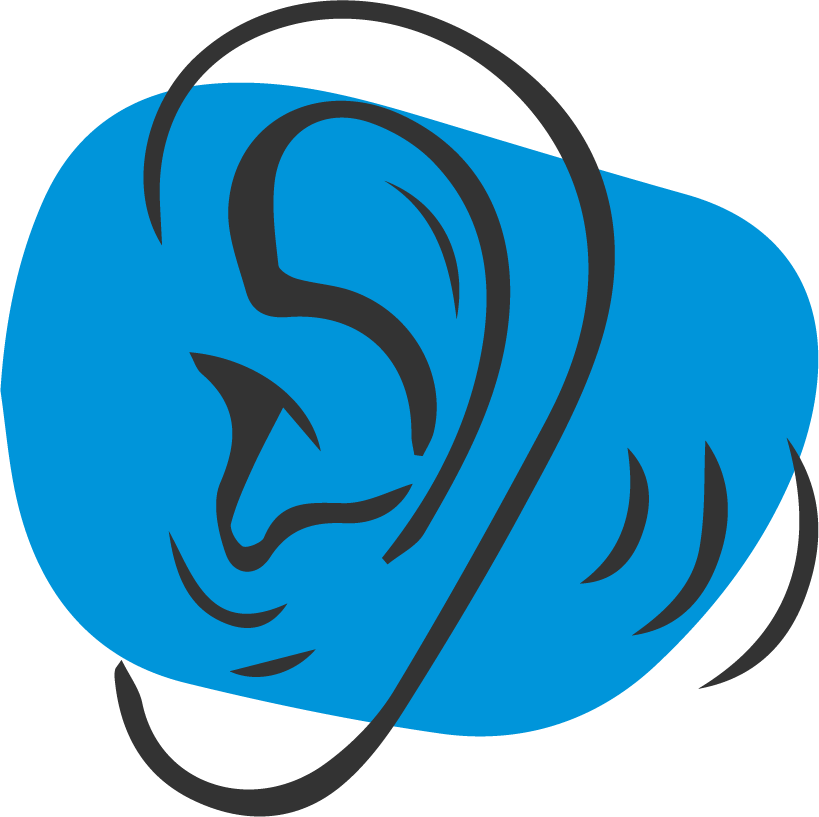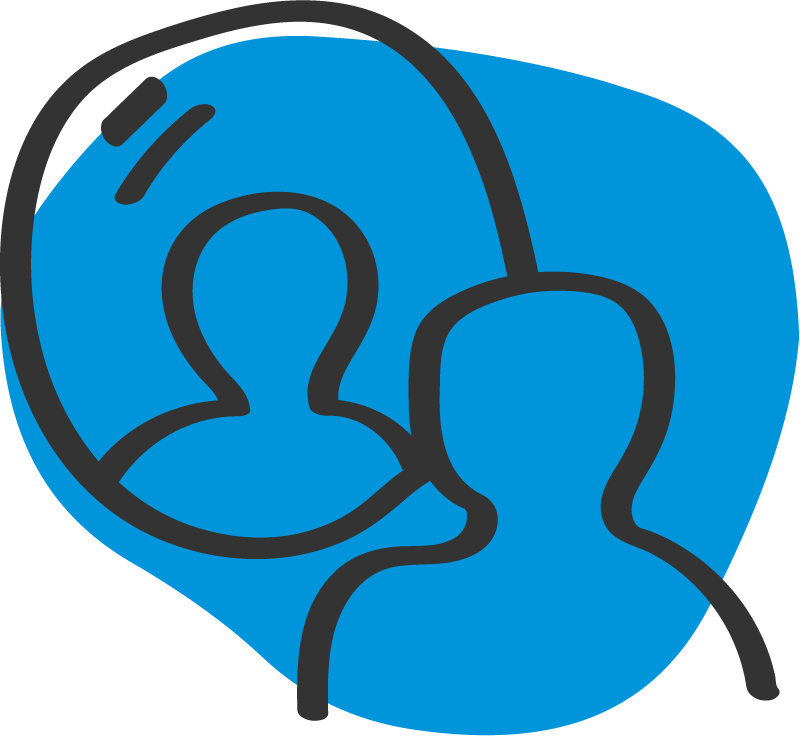About Psychosis

Psychosis impacts approximately 100,000 youth and young adults each year.

3 out of every 100 people will experience psychosis in their lifetimes

Who is at risk?

Individuals ages 16-35 are especially vulnerable

Drug use

Traumatic disruptions in key developmental stages of childhood

Family history of schizophrenia or other mental health conditions

Social or environmental factors

Brain injury
Common Signs & Symptoms
A number of unusual experiences (symptoms) and behaviors (signs) can be present during an episode of psychosis. While symptoms can be subtle and expressed only to a trusted relative or friend, many of the signs can be observed before the individual is willing to acknowledge their need for help. When there is uncertainty about the presence of psychosis, reach out to us or a healthcare professional.

Disturbances in sensory perception
Seeing, hearing, smelling, tasting, and feeling things that are not real. Occasional or persistent hallucinations that cause individuals to experience someone or something that is not there. Friends and family may witness individuals speaking out loud to no one in particular, or interacting as if they had company when they are alone.

Confused thinking or speech
Trouble concentrating, connecting one's thoughts, or slowing one's thoughts down while they tend to race. Words are jumbled, off-pace (fast or slow), and may seem fragmented or incoherent to others. Friends and family may have trouble understanding them or following an individual's train of thought.

False beliefs and interpretations
Persistent delusions that interfere with daily life, such as that one has magical or superhuman powers, or that outside forces are trying to control an individual. Friends and family may encounter anger or resistance when they point out that the delusions are not real.

Suspiciousness, paranoia, or unease with others
Experiences of psychosis can be quite frightening. Individuals may not understand what is happening to them and may be afraid to tell others. Experiences of paranoia can range from the belief that a government agency is scheming against an individual to suspicions that one’s family is poisoning food.

Extreme behaviors in response to these things that seem very real
It can be frustrating to experience things that others claim are not real. Loved ones may observe angry or extreme responses that seem out of proportion to what is happening. It is important to be mindful that these responses are usually rooted in fear and/or confusion.

Recognizing patterns and signs in random occurrences
Tendency to detect patterns that do not exist. Loved ones may notice individuals making predictions or seeking answers, based on unrelated events. This can lead to poor decision-making and increase the intensity of other symptoms.

Withdrawing from family and friends
Being with others may increase paranoid delusions through social anxiety or feelings of social threat. You may notice that over time individuals become more isolated and lose interest in social activities that they once enjoyed.

Decline in self-care and motivation
Lack of self-care in terms of personal health, hygiene, and living conditions. Individuals often lose motivation to get daily tasks done and lose interest in things they once enjoyed.

Disruptions in school and work life
Experiencing psychosis can affect an individual's ability to concentrate, remember things, and keep track of a schedule. This makes following directions and other school and work-related activities difficult. Friends and family may notice a drop in grades or work performance.

What Causes Psychosis?
Psychosis vs. Schizophrenia
Why Substance Use Matters
General Health
Emerging adults with psychosis, just like their peers, need routine preventative care, attention to their sexual, reproductive and general physical health and targeted management of any emerging medical disorders. Coordinated care by behavioral health and other medical professionals is important and can ensure that recovery from the effects of psychosis is accompanied by good overall health and functioning.
Co-occurring Disorders
What happens to people who experience psychosis?
Unfortunately, many individuals with psychosis do not wish to seek help or know where to go for assistance. The time from psychosis onset to the start of effective treatment (or the Duration of Untreated Psychosis, DUP) is often measured in months or even years. During this period, individuals with psychosis may have unnecessary interactions with the criminal justice system or involuntary admissions to psychiatric hospitals.
Family, friends, and other community members (e.g., teachers, clergy, police) can help by learning about the common signs and symptoms and assisting the person with psychosis to access care. Shortening the DUP can reduce the distress, disability, and even risk of self-harm in persons with psychosis. We are here to help anyone in the community who is concerned about someone who may have psychosis, call us.
Treatment Works
Psychosis is treatable, and it is widely accepted that the earlier people get help the better the outcome. With treatment, recovery in psychosis is the expectation, not the exception.
If you or someone you love is struggling with any of these symptoms and live in Connecticut, please call our referral line. An Early Detection and Assessment Coordinator (EDAC) will be able to help screen for psychosis, differentiate it from other, related illnesses, and direct you to care.
or more information on these and other topics see STEP Learning Collaborative website.